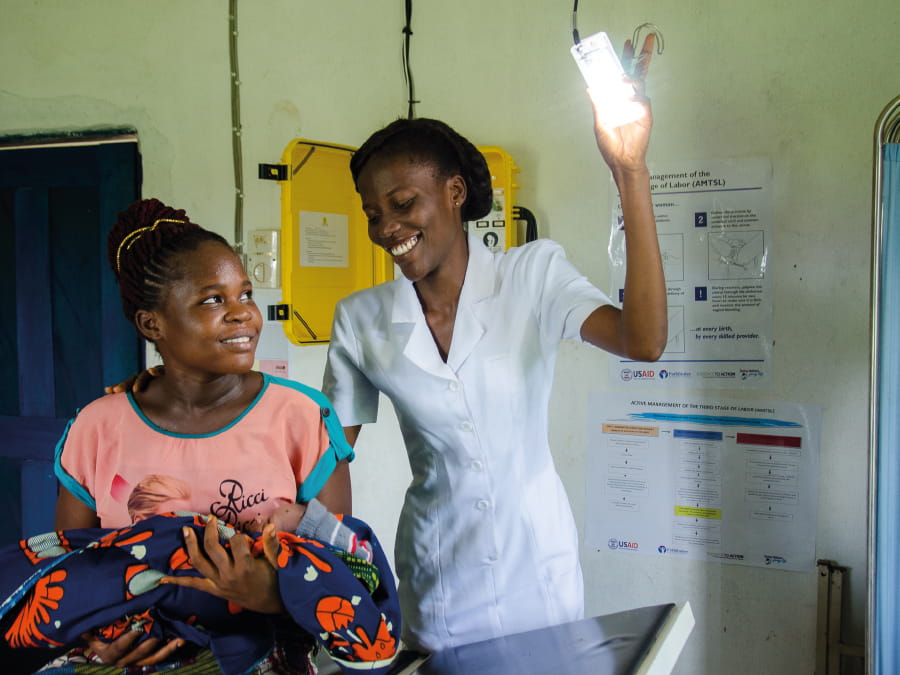By Laura E. Stachel, M.D., M.P.H., Executive Director & Co-founder of WeCareSolar
Imagine having to deliver a baby or perform a Cesarean section…in the dark.
Clean solar energy can offer a safe, appropriate and sustainable solution to this global challenge. Since 2010, We Care Solar has been on a mission to “light every birth” by providing compact, rugged Solar Suitcases for maternal health facilities, as we believe that every woman has the right to safe childbirth and every health centre is entitled to reliable electricity.
According to the World Health Organization, as many as 72 per cent of health facilities in Sub-Saharan Africa lack reliable electricity. At least one-quarter have no electricity at all.
The lack of basic lighting and electricity is one of the reasons that 300,000 women die from pregnancy-related complications, each year, and one million newborns die on their first day of life, mostly in Africa and Southeast Asia.
The thing is, we know how to save these lives and help families and communities thrive. Between 1990 and 2015, the global maternal mortality rate decreased by 44 per cent, from 385 maternal deaths, per 100,000 live births, to 216. The United Nations Sustainable Development Goals call for a reduction to fewer than 70 maternal deaths per 100,000 live births by 2030.
We have a lot of work to do. The rate in sub-Saharan Africa remains 546 per 100,000 live births.
From my own experience, such critical issues became the driver behind the solutions we sought to introduce. Specifically, the design and deployment of the “Solar Suitcase” device for maternal health facilities. Offering appropriate lighting, fetal monitoring and mobile communication, we also understood that by conducting training we would empower local capacity to install, operate and maintain reliable solar electricity, in frontline health clinics.
To date, we have been able to reach more than 4,000 health centres, enabling safer childbirth for 3.8 million mothers and newborns. In July 2019, another important milestone in our campaign was reached, with Liberia became the first country to completely “Light Every Birth.” Within five years, in five countries, we aim to have national scale and impact 17 million mothers and babies. Next up: Uganda.
To ensure healthy childbirth, we need clean, distributed electricity to be central to all of our global health goals. The same frontline clinics where mothers go to give birth are the same ones that can vaccinate children. The same health workers, empowered with the right tools, can detect – and stop – epidemics like Ebola. They can work with communities to reduce non-communicable diseases like diabetes and heart disease. These clinics are not just "the last mile," they are at the frontline of delivering virtually every one of the UN’s 17 Sustainable Development Goals.
No woman should die giving life. No health worker should be forced to work in darkness. We have the power – clean, distributed, affordable power – to keep our communities and our planet healthy for future generations and our own.
.svg?iar=0&hash=670E3638BC16C0DD69B262DD1184DEA8)

